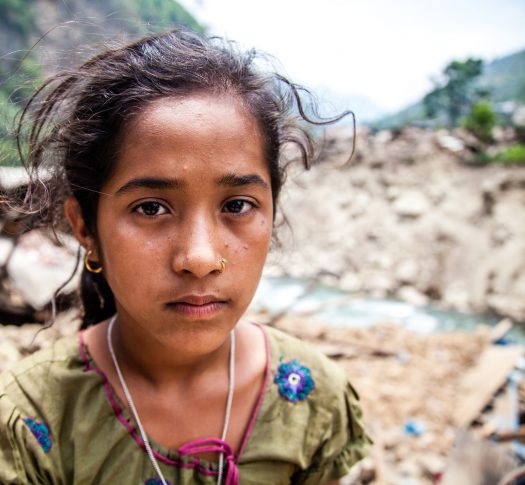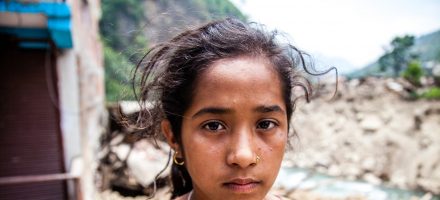


- Médecins Sans Frontières
The association provided medical and surgical assistance to the injured, focusing its activities on areas that were more difficult to access. It was able to provide 2,500 medical consultations and 7,000 psychological consultations thanks to:
- mobile helicopter teams;
- temporary healthcare units under tents;
- an inflatable 20-bed hospital in Arughat (operating room, emergency room, maternity room) to replace the destroyed health centre.
Our partner MSF also distributed food, shelter, cooking kits, hygiene kits and tools to 15,000 families. Finally, MSF helped to provide water supply networks for 7,000 people in Kathmandu.
[/one_half] [one_half]
- International Red Cross and Red Crescent Movement
In the first emergency phase, assistance was provided to 75,000 people in terms of shelter, water and sanitation, medical assistance and basic necessities. The French, German and Finnish Red Cross organisations set up an emergency health centre in a tent from which mobile medical teams worked, equipped with a surgical block and two mobile clinic units. This centre enabled between 70 and 100 consultations to be provided each day, as well as psychosocial support for children.
A few months after this emergency action, the Danish and French Red Cross organisations took action with a programme of recovery for the region. Running until June 2017, the programme focused on securing and restoring schools in order to create 96 classes accommodating between 3,500 and 5,000 beneficiaries.
[/one_half]
- CARE
Since the start of the disaster, CARE teams have worked with the victims. In total, the association has helped over 130,000 people by distributing food and water, emergency kits (tarpaulins, blankets, soap, clothing) and by improving access to water, hygiene and sanitation (distribution of jerry cans, water purification tablets). Our partner CARE has also supported the affected populations by providing long-term reconstruction as part of a project running from 2015 to 2019:
- support for safer reconstruction and strengthening of houses;
- means of subsistence (distribution of seeds, 'cash for work' for the repair of roads, etc.);
- raising of awareness in communities about gender-based violence;
- access to maternal and reproductive health (equipment for health centres, safe delivery kits, awareness-raising).


